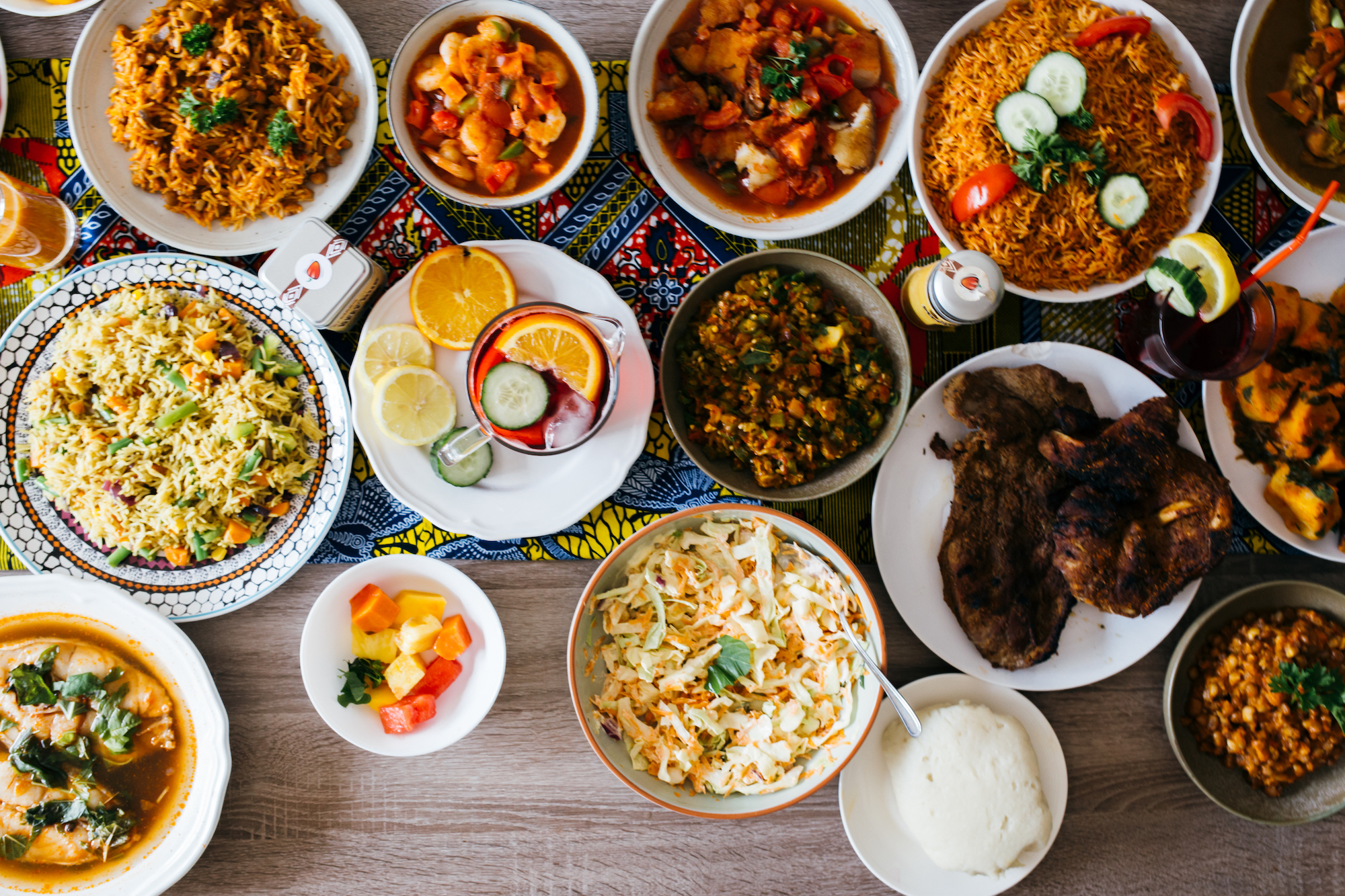In the midst of the increasing adoption of foreign delicacies, the Health of Mother Earth Foundation (HOMEF), has embarked on a project to raise awareness about the need for Africans to begin to patronize their local and healthy foods.
HOMEF in collaboration with A Growing Culture, organized the ‘My Food is African’ digital campaign to spotlight and promote local foods, and equally resist the influx of genetically modified organisms (GMOs) into the continent’s markets being spearheaded by foreign corporations.
As part of a larger campaign led by the Alliance for Food Sovereignty in Africa (AFSAfrica), Africa’s largest civil society group for food sovereignty and agroecology, the campaign stood against furthering the legacies of industrial agriculture and fought for a Nigeria where local farmers, not corporations, are prioritized.
The digital campaign which culminated in a webinar, last week, focused on promoting the understanding that African food is their identity, heritage and culture and anything that threatens this must not be allowed to thrive.
READ ALSO: Health Risks Of Microwaving Food In Plastics
The webinar was moderated by Mariann Bassey-Orovwuje, Coordinator of Friends of the Earth Africa’s Food Sovereignty Programme.
The Executive Director of HOMEF, Nnimmo Bassey, who gave the keynote, stressed the need for Africans to reevaluate how they think about their food, seeds, and food systems.
He said: “We need to revive our memories and recollect who we are and ought to be. We need to liberate our tongues to regain the tastes that we have lost due to the prevalence of monocultures and junk food.”
READ ALSO: HOMEF Tasks African Nations On Adopting Agro-ecology, Scaling Down Fossil Fuel Use, As Solutions To Climate Change
“Resilience is important but saying ‘My Food is African’ is more than resilience. It is also about resistance – resistance to Genetically Modified Organisms (GMOs), to the erasure of our food systems, to overly processed foods. Beyond resilience and resistance, there is defense. We must stand together in defense.
“Our history shows that our farmers have always lived in harmony with the environment. Farmers are knowledge holders. The farm is a living laboratory, and our farmers have this knowledge. There is a need to listen to, learn from, and support these farmers,” Bassey added.
Following the keynote was a panel session that examined the African food system. On the panel was Yemi Amu, Founder, and Director of Oko Farms; Lovelyn Ejim, Farmer and Director of Network of Women and Youth in Agriculture; Ikenna Bobmanuel, Chef and Contributor at the Ghana Food Movement; and Joyce Brown, HOMEF’s Project Lead on Hunger Politics. The panelists had an insightful discussion on the theme of the campaign.
Yemi Amu sees food as a connector to one’s local roots. She said it is out of ignorance that Africans think Western food is better. “Going forward, it is important for us to change how we think about our food, to learn about the ancestral legacy of our foods, and to look at our foods holistically – as nutrition, as medicine, as a connector and a spiritual component of our lives.
Amu said his journey into farming started with asking questions about the food systems and what the people really need.
He said: “It didn’t make sense to me to plant kale and other things I didn’t grow up eating, things I have no connection with. I started to ask myself: How do I show up authentically? How can I learn more about myself as a Yoruba person? How can I build pride in myself and in my roots? What I’m doing with my work is just demonstrating that our food is nutritious and versatile and can be grown. I think that if more of us are farming it, talking about it, and feeding our children with it, we will help more people embrace their indigenous foods. Young people like to look good and so, we can link it to better skin and hair health, etc. Also, lots of people care about the environment and we can link to that too.”
On his part, Ikenna Bobmanuel said is important to look inwards and see the need to create African cuisine instead of focusing on foreign foods which seems to be the rave of the moment.
Bobamanuel said that while being taught French and Italian Cuisines at culinary school, he began to wonder, What could be for African cuisine and the future of the continent’s food.
“There’s a prevalent western perspective on African food that’s thriving because Africans are not in the space to tell their story,” Bobamanuel noted.
“We need to talk more and push our own narrative about our foods. It is expedient that we change this narrative, and we must use the media,” he added.
Joyce Brown spoke on the many challenges associated with genetic modification, especially food resources. She said that the results of the manipulation are not completely known but so far, they have been linked to cancers, diseases, allergies, and all sorts of health challenges.
According to her, they also come with environmental implications because of their dependency on toxic pesticides and the destruction of biodiversity and ancestral diversity.
“We don’t need GMOs to feed our population. We can’t have Africans in control of African foods when we have genetic modification. Instead, what we will have is modified genes taking over indigenous seeds because they cannot co-exist,” Brown stated.
For Lovelyn Ejim it is important for farmers to also speak in a united voice. She maintained that allowing GMO lovers take over the food system is like going back to slavery.
“We should not allow the big guys to use unfounded English and unrealistic promises to derail us. Working with farmers is not easy work but the interesting thing is that whenever you make them understand any coming danger, they do everything possible to avoid it,” Ejim stated.
To promote change and this movement for healthier food, Amu believes it is important to go back to farmers. According to her, farmers possess knowledge that no one respects, and “we need to change that by listening to them, supporting them, and standing in solidarity with them.”
Bobmanuel advised that to facilitate the reclamation of indigenous foods, the people need to create a global cuisine from the lens of indigenous African ingredients. “Africa has been so separated by borders and to close the knowledge gap, African cuisine needs to be seen from a borderless perspective.
“Chefs across Africa should push boundaries about exploring diversity in food. Even restaurants should buy into this ideology of sourcing locally and patronizing local farmers,” Bobmanuel advised.
He called on the government to place embargos on certain imported food and encourage youths in agribusiness and agri-processing to produce in a larger scale.
The webinar ended with a question and answer session where participants asked questions on seeds, agroecology, farming, cassava processing, and the revival of cultural celebrations that used to be a way of promoting indigenous foods.
Panelists also shared some of their best memories of indigenous food and encouraged participants to keep the conversation going. They concluded by noting that it is the people’s duty to decide what they want to eat; how they want to grow it and how they want to eat it, and not allow it to be taken away from them.
Victor Ezeja is a passionate journalist with six years of experience writing on economy, politics and energy. He holds a Masters degree in Mass Communication.



















Follow Us